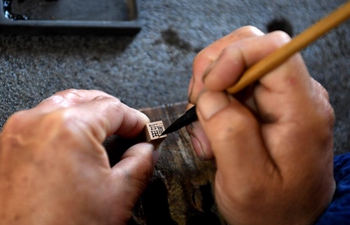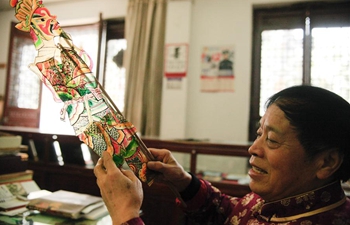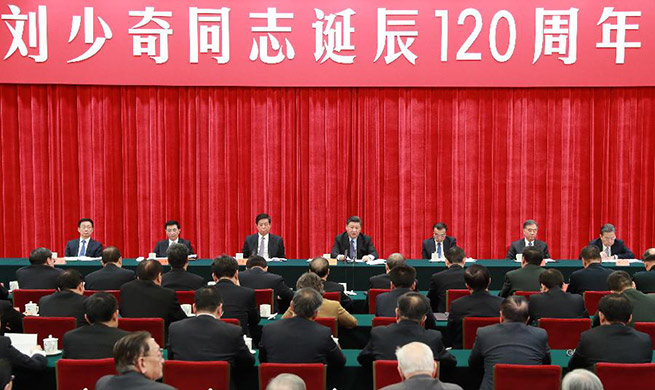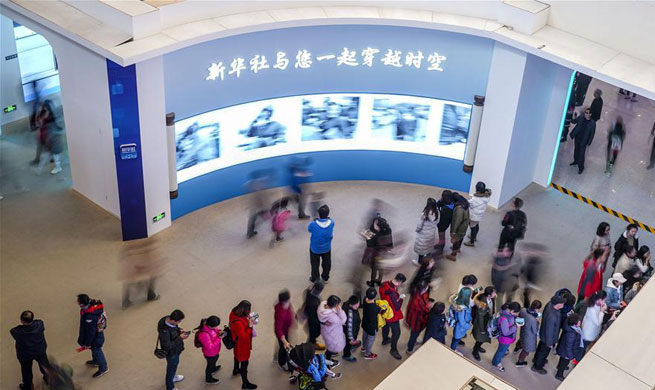LANZHOU, Nov. 24 (Xinhua) -- For more than a decade, Ma Wansheng ran a small food stand in a night market in Lanzhou, capital city of northwest China's Gansu Province, providing local snacks for people working overtime or hitting the bar.
Receiving payments had always been a hassle for the 71-year-old, who often had to fumble in his pocket for change on chilly nights while keeping an eye on food cooking in the oven.
Doing business became much easier after his grandson helped him set up mobile payment apps like WeChat Pay and Alipay last year. A piece of paper with his QR payment codes has helped streamline the check-out process.
"About 95 percent of my customers pay with their phones. It's convenient for both of us," said Ma. "And giving the wrong change is no longer an issue."
Like Ma, an increasing number of China's senior citizens have embraced Internet-based mobile technology and many have also started to enjoy the convenience of mobile payment apps.
According to a report released by the Chinese Academy of Social Sciences at the end of 2017, the ratio of Internet users who are over 60 or above rose to 5.2 percent, up 1.2 percentage points from end-2016.
"For many Chinese, mobile payment has become an essential part of their everyday lives. It not only changes the lives of young people, but also provides convenience for the elderly," said Zhang Jianjun, an economist based in Gansu.
China had more than 241 million people aged 60 or above at the end of 2017, 17.3 percent of the total population at the time, according to official statistics. The country's elderly will account for about one-quarter of the population by 2030.
Realizing that new technology can be an effective tool in solving many problems related to old age, the Chinese government has been promoting the use of technologies such as the Internet and artificial intelligence in the area of elderly care.
Two months ago, Ma bought himself a smartphone and has learned to make digital payments. Now, he has gotten used to going to the convenience store or the market without any cash.
"Whenever there is something new," Ma said, "I am always willing to give it a try."

















